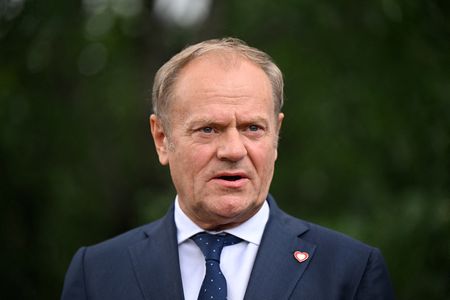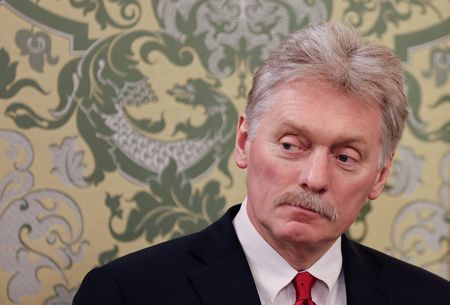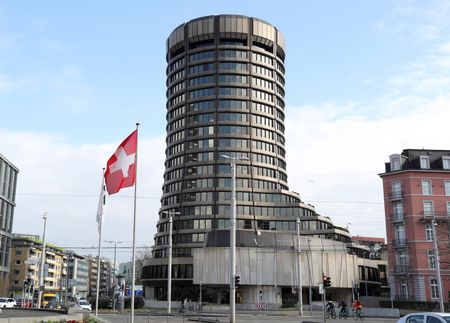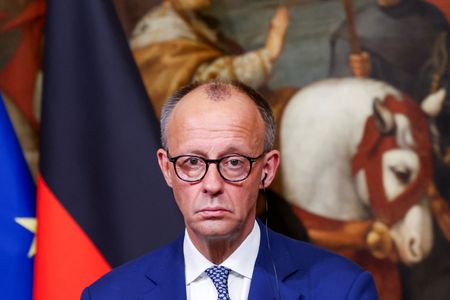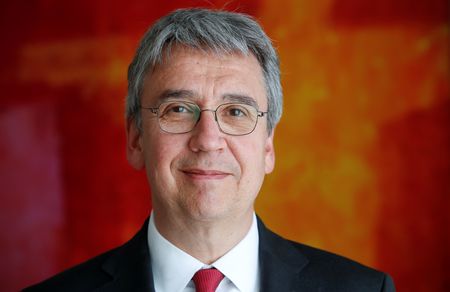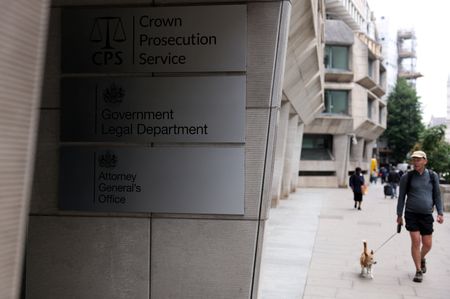By Anna Wlodarczak-Semczuk and Justyna Pawlak
WARSAW (Reuters) -If large urban centres are the core constituency of the liberal government of Polish Prime Minister Donald Tusk, then Sunday’s presidential election first round showed him struggling against an anti-establishment pushback simmering throughout Europe.
Warsaw mayor Rafal Trzaskowski, a close ally of Tusk, scraped a narrow win over Karol Nawrocki, a conservative historian fielded by the opposition nationalist Law and Justice party (PiS).
Together, candidates backed by parties in Tusk’s broad coalition won 40% of votes, while the combined far-right garnered a record 21%.
Trzaskowski, who speaks six languages and is the son of a jazz musician, got almost a quarter of a million fewer votes in the five biggest cities than in the first round five years ago, when the PiS-backed incumbent Andrzej Duda was re-elected.
Andrzej Rychard, a sociologist from the Polish Academy of Science, called the outcome a “yellow card” for Trzaskowski ahead of an as-yet unpredictable runoff on June 1.
A Trzaskowski victory would give Tusk a chance to complete the democratic reforms that he promised to implement when he swept to power in 2023, ending eight years of nationalist PiS rule that he and Poland’s Western allies said had eroded checks and balances.
A win for Nawrocki, a social conservative with a eurosceptic streak, would further hinder this, and also weaken Tusk’s efforts to rebuild alliances that he sees as crucial to European unity on supporting Ukraine in its three-year-old war against Russian invasion.
Like Duda, Nawrocki would also be likely to stymie any Tusk efforts to relax Poland’s near total ban on abortion, a key Tusk election promise from 2023.
However, Nawrocki’s first-round performance, much like Trzaskowski’s, was underwhelming. His 29.5% score was well below the 35.4% that PiS won in 2023’s parliamentary election.
It was anti-establishment parties such as the far-right Confederation and the radical Left who did better than in the last parliamentary and presidential elections, and that should be no surprise.
FRUSTRATION WITH EUROPE’S ESTABLISHED PARTIES
Voters across Europe are frustrated that established parties in power appear to have little answer to problems such as inflation and the negative effects of immigration.
Former communist countries in Central Europe such as Poland embraced joining the EU from 2004 onwards, but the hopes their citizens once had of catching up fast with their wealthier western neighbours have faded in recent years.
The COVID-19 pandemic and then the economic fallout from Russia’s invasion of Ukraine have slowed economic convergence to the point where the European Central Bank said last June that “since 2019, the catching-up process has stalled, or even reversed”.
Krzysztof Izdebski, policy director at the Batory Foundation, said a majority of votes on Sunday had gone to opposition groups.
“So, it is clear that … what has happened over the past two years did not impress Poles or give them confidence that these reforms could be completed,” he said. “The issues that mobilised opposition electorates have remained unaddressed.”
Trzaskowski has sought to put some distance between himself and Tusk’s government.
“We certainly do not intend to break away from the coalition,” said campaign team member Dorota Loboda. “At the same time, we emphasise that, of course, Rafal Trzaskowski is not part of the government puzzle and, as president, he will be independent,” she said.
One big goal for both remaining candidates will be attracting younger voters.
“It would be best to do something on housing for young people, because it’s really hard for young people now,” said Barbara Zurawska, a pensioner from Warsaw. “They live with their parents for a very long time, and it’s hard to take out loans and repay them. Not everyone can do that, can they?”
Exit poll data showed that turnout among voters under 30 was nearly 73%, compared with the overall figure of 67%.
The far-right’s Slawomir Mentzen, who came third on Sunday with 14.8%, won more than 36% of young votes, while the hard-left Adrian Zandberg scored 4.9%, helped by 19.7% of the younger vote.
(Additional reporting by Anna Koper, Marek Strzelecki and Barbara Erling; writing by Justyna Pawlak; Editing by Kevin Liffey)

